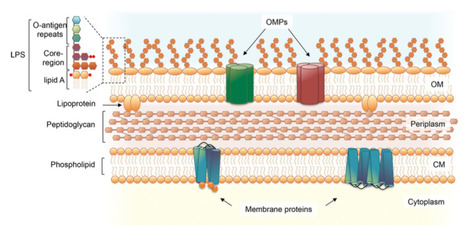
The Gram-negative bacterial lipopolysaccharide (LPS) is a major component of the outer membrane that plays a key role in host–pathogen interactions with the innate immune system. In a review paper published in FEMS Microbiology Reviews, BSRG-IBB researchers Rita Maldonado and Isabel Sá Correia, in collaboration with Miguel Valvano from Queen’s University Belfast, review recent data on the modifications of LPS structure and biosynthetic pathways that occur upon adaptation of model opportunistic pathogens (Pseudomonas aeruginosa, Burkholderia cepacia complex bacteria, Helicobacter pylori and Salmonella enterica) to chronic infection in respiratory and gastrointestinal sites. The molecular mechanisms of these variations and their role in the host–pathogen interaction are also discussed. This is a very important topic because several studies have shown alterations in the LPS molecule during chronic infection, which are thought to contribute to adhesion, host colonization, immune defenses evasion and adaptation to the infection niche. Different mechanisms both at the genetic and epigenetic levels have been implied in LPS variation, creating LPS diversity and thus contributing to the success of the infection. An in-depth understanding of LPS variation and its effects on pathogenicity and virulence is thus of paramount importance in the understanding of infection establishment and progression.



 Your new post is loading...
Your new post is loading...





